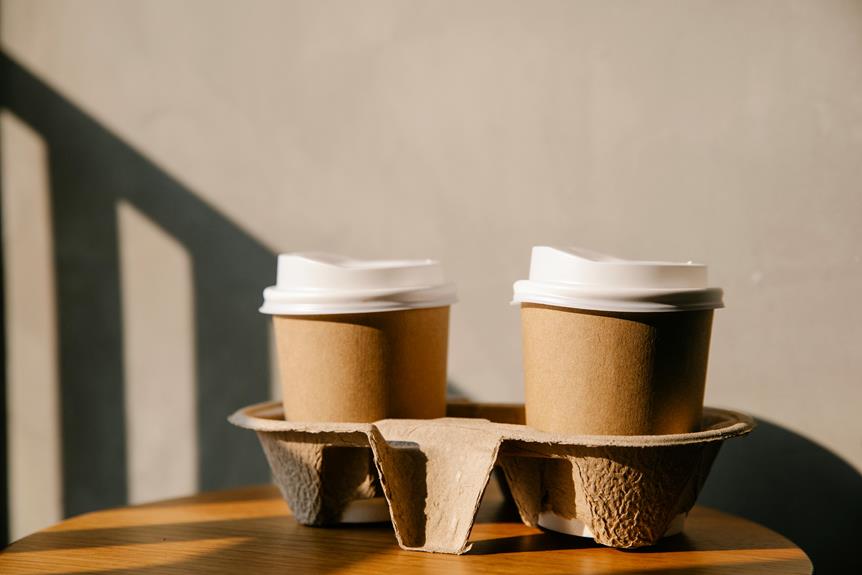

When it comes to the intriguing comparison of hojicha vs matcha, the choice really boils down to your personal taste preferences and health goals. Both of these Japanese teas have their unique characteristics, flavors, and benefits that cater to different
What Is Hojicha vs Matcha?
At its core, the debate of hojicha vs matcha revolves around two distinct types of Japanese green
When comparing these two teas, several factors come into play, including their appearance, aroma, flavor profiles, caffeine content, health benefits, and much more. Let’s explore each aspect to help you decide which
Color and Appearance Comparison
When diving into hojicha vs matcha, the first noticeable difference is their color and appearance.
- Matcha presents a bright, vibrant green powder, which is visually striking and often associated with freshness and vitality. The rich green color is a result of the shading process and the careful grinding of young
tea leaves. - Hojicha, on the other hand, takes on a warm reddish-brown hue due to the roasting process. This transformation from green to brown is not just aesthetic; it signifies a shift in flavor and aroma as well.
The contrasting colors make it easy to distinguish between hojicha and matcha at a glance, and each color tells a story about the
Aroma Variations
Aromas play a vital role in the overall tea experience. When we compare hojicha vs matcha, their aromatic profiles are as distinct as their appearances.
- Matcha gives off a fresh, grassy aroma that reflects its green, unroasted leaves. This invigorating scent is often associated with spring and freshness.
- Hojicha offers a rich, smoky, and toasted aroma. The roasting process cultivates complex scents that resemble roasted nuts, chocolate, or coffee, creating a cozy and inviting experience.
The differences in aroma between hojicha and matcha are a direct result of their respective processing methods, and these scents can enhance your overall enjoyment of the
Flavor Profiles: Hojicha vs Matcha
When it comes to flavor, hojicha vs matcha offers two completely different experiences.
- Hojicha delivers a smooth, rich, smoky flavor that can be quite comforting. Its roasted green
tea leaves provide warm, nutty undertones with a slightly sweet finish, making it an excellent choice for those seeking a mellowtea experience. - Matcha, in contrast, has a more intense flavor profile. Its vibrant green hue translates to a bold, vegetal taste with a hint of bitterness and a satisfying umami finish. Matcha drinkers often enjoy the depth of flavor that comes from consuming the whole tea leaf.
Both hojicha and matcha offer unique taste experiences that cater to different preferences. Whether you’re in the mood for a nutty, roasted cup of hojicha or a vibrant, grassy cup of matcha, both teas promise a delightful journey through the world of flavors.
Caffeine Content Variation
Another key factor in the hojicha vs matcha debate is caffeine content. This can significantly influence your choice based on your caffeine sensitivity and desired energy levels.
- Matcha contains approximately 70 mg of caffeine per cup due to its unroasted leaves, providing a more potent energy boost. If you’re looking for a morning pick-me-up or an afternoon boost, matcha might be your go-to.
- Hojicha, however, has considerably lower caffeine levels, averaging around 7.7 mg per cup. The roasting process reduces the caffeine content, making hojicha a fantastic option for those sensitive to caffeine or for evening enjoyment.
Understanding the caffeine differences between hojicha and matcha can help you choose the right
Health Benefits Overview
Both hojicha and matcha come with their own set of health benefits, which can be a deciding factor in the hojicha vs matcha discussion.
Matcha’s Antioxidant Power
Matcha is renowned for its high levels of antioxidants, particularly catechins. These compounds are linked to numerous health benefits, including:
- Improved Immune Function: The antioxidants in matcha help support your immune system and reduce inflammation, potentially lowering the risk of chronic diseases.
- Boosted Metabolism: The catechins found in matcha can enhance metabolic rates, aiding in weight management and fat oxidation.



Konnichiwa! (Hello!) I'm Pat Tokuyama, a Japanese tofu cookbook author, who travels for music, food, and adventure. If you like Japanese tea, checkout some of the newestorganic japanese tea, matcha bowls and noren and more!
** Curious about the Plant Based Japanese Cooking Club? ** Learn more here!
Hojicha’s Stress-Reducing L-Theanine
Hojicha, while lower in antioxidants compared to matcha, still offers notable health benefits:
- L-Theanine Content: Hojicha contains L-theanine, an amino acid known for promoting relaxation and reducing stress. This makes hojicha a great choice for unwinding after a long day.
- Digestive Aid: The roasting process of hojicha creates beneficial compounds like pyrazine, which can aid digestion and improve blood circulation.
Both teas are excellent for your health, but they serve different purposes based on their unique compositions. Choose according to your wellness goals!
Antioxidant Levels Analysis
When we analyze the antioxidant levels in hojicha vs matcha, we find significant differences that may influence your decision.
| Antioxidant Type | Hojicha | Matcha |
|---|---|---|
| Catechins | Lower concentration | Higher concentration |
| EGCG | Moderate levels | Abundant levels |
| L-Theanine | Present in moderate amounts | Rich source |
| Chlorophyll | Lower amounts | Higher content |
These antioxidants play essential roles in promoting health and well-being. Matcha’s higher antioxidant levels make it particularly effective for detoxification and immune support, while hojicha offers unique benefits through its calming properties.
Taste Test: Hojicha vs Matcha
When it comes to taste, the differences between hojicha vs matcha become even more pronounced.
- Hojicha invites you to indulge in a rich, earthy experience with hints of roasted nuts and caramel. It’s perfect for those seeking a soothing, smoky-sweet escape.
- Conversely, matcha offers a bright, grassy adventure, complemented by a touch of bitterness and a satisfying umami finish. It’s ideal for those craving a vibrant and invigorating
tea experience.
Consider the mouthfeel as well: enjoy the smooth, mellow texture of hojicha or the thicker, astringent feel of properly whisked matcha. Each sip tells a unique story crafted to suit your mood and desires.
Nutritional Value Breakdown
When comparing the nutritional value of hojicha vs matcha, you’ll begin to see how they cater to different health needs.
- Matcha stands out with its higher levels of antioxidants, vitamins, and minerals, making it a superfood in the tea world.
- Hojicha, while lower in certain nutrients, still has its advantages, including higher levels of pyrazine, which contributes to its toasty aroma and potential cardiovascular benefits.
Each
Choosing Between Hojicha and Matcha
To decide between hojicha and matcha, consider the following factors:
- Caffeine Sensitivity: If you’re sensitive to caffeine and prefer a gentler drink, hojicha is likely the better choice.
- Flavor Preferences: If you enjoy nutty, roasted flavors, go for hojicha. If you prefer grassy, vegetal notes, matcha is your best bet.
- Time of Day: For a morning or midday boost, matcha is ideal. If you’re looking for something soothing in the evening, hojicha is perfect.
- Versatility in Recipes: Both hojicha and matcha can be used in a variety of recipes. Consider which flavor profile you’d like to incorporate into your cooking and baking.
Conclusion
In the battle of hojicha vs matcha, both teas have their unique charms and benefits. Whether you’re drawn to the bold, smoky sweetness of hojicha or the vibrant, intense flavor of matcha, there’s a perfect Japanese
Experiment with both varieties to discover which one resonates with your taste buds and lifestyle. Whichever you choose, you’re sure to enjoy the delightful experience each
Cheers to finding your favorite cup and embracing the diverse world of Japanese green teas!




Konnichiwa! (Hello!) I'm Pat Tokuyama, a Japanese tofu cookbook author, who travels for music, food, and adventure. If you like Japanese tea, checkout some of the newestorganic japanese tea, matcha bowls and noren and more!
** Curious about the Plant Based Japanese Cooking Club? ** Learn more here!